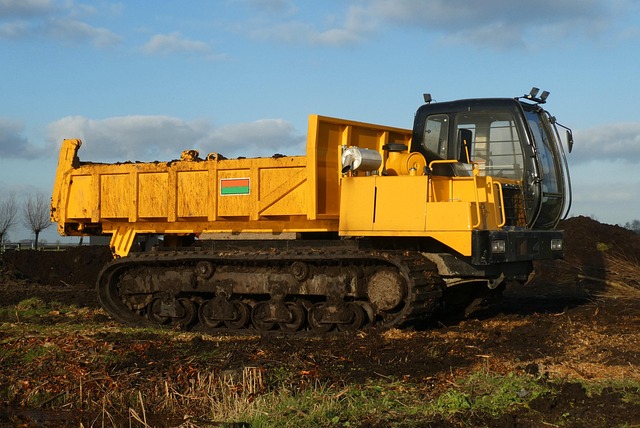Starting a trucking business faces unique insurance challenges requiring specific coverage for trucks, trailers, and cargo. Focus areas include liability, cargo, and physical damage protection to mitigate risks from accidents, theft, and natural disasters. Tailored trucking policies offer affordable startup insurance options while securing assets for small fleets, empowering owners with crucial risk management decisions for long-term success. Compare quotes from specialists in trucking and small fleet insurance to find the best rates for specific needs.
“Empowering Startup Owners in the Trucking Industry: Navigating the Insurance Landscape”
Starting a trucking business comes with unique challenges, especially when it comes to insurance. This comprehensive guide aims to equip startup owners with the knowledge needed to secure optimal coverage for their new ventures. We explore the intricate world of trucking business coverage, highlighting the importance of understanding tailored policies for small fleets and startups. From deciphering liability and cargo insurance to recognizing physical damage coverage, this article is your go-to resource for affordable startup insurance in the dynamic trucking sector.”
Understanding the Unique Insurance Needs of Trucking Startups

Starting a trucking business can be an exciting yet challenging venture, and one area that often requires meticulous attention is insurance. New trucking startups face distinct insurance needs that differ from established companies. These businesses operate with valuable assets like trucks, trailers, and cargo, all of which need protection against various risks. Therefore, securing the right coverage is crucial for their survival and long-term success.
Trucking startup owners must consider liability insurance to safeguard against potential accidents or damage caused during transportation. Cargo insurance is another vital component, ensuring that goods in transit are protected from theft, loss, or damage. Additionally, physical damage coverage is essential to repair or replace vehicles involved in collisions or other incidents. Tailored trucking policies that offer comprehensive protection at affordable rates can help these new businesses manage risks effectively without breaking the bank.
Deciphering the Landscape of Trucking Business Coverage

In the dynamic world of trucking, business owners face a labyrinthine landscape when it comes to insurance coverage. With various types of risks involved—from liability to cargo damage and physical vehicle accidents—finding the right balance of protection can be daunting, especially for startups with limited resources. New trucking businesses often struggle to navigate this complex web, making it crucial for them to partner with insurers who understand their unique needs.
Empowering startup owners involves equipping them with knowledge about tailored trucking policies. This includes understanding the nuances of liability insurance, which safeguards against claims related to accidents or damage caused during transportation. Additionally, cargo insurance is a game-changer for new businesses, ensuring protection against losses incurred due to theft, damage, or destruction of goods during transit. Physical damage coverage also plays a vital role in safeguarding vehicles from perils like accidents, natural disasters, and vandalism. By demystifying these aspects, insurance startups can enable trucking business owners to make informed decisions, ultimately securing the best possible coverage for their operations and future success.
Strategies for Acquiring Affordable and Tailored Insurance Policies

Starting a trucking company or any business for that matter comes with its own set of risks and uncertainties. This is where having the right insurance policy can be a game-changer. For new trucking businesses, securing affordable and tailored insurance coverage might seem like a daunting task due to the industry’s inherent risks and potential liabilities. However, there are several strategies startup owners can employ to navigate this process successfully.
One effective approach is to compare quotes from multiple insurance providers who specialize in trucking and small fleet insurance. These specialists understand the unique needs of new businesses and can offer customized policies that cover liability, cargo, and physical damage. By shopping around, you can find affordable rates and ensure your policy aligns with your specific requirements. Additionally, exploring options for combined coverage or bundling different types of insurance can lead to significant savings on your overall protection.
Protecting Your Startup's Assets: Liability, Cargo, and Physical Damage Coverage Explained

Starting a trucking business comes with unique challenges that require specialized consideration when it comes to insurance. Protecting your startup’s assets is crucial, and understanding different coverage options can help ensure a solid foundation for your new trucking company. Key areas to focus on are liability, cargo, and physical damage coverage.
Liability insurance is essential for startups as it shields against potential claims related to accidents or injuries caused by your operations. Cargo insurance is equally vital, especially for trucking companies, as it protects the goods you transport from loss or damage during transit. Physical damage coverage is another critical component, designed to safeguard your vehicles and equipment from perils like accidents, theft, or natural disasters. Tailored trucking policies that encompass these aspects can offer new businesses affordable startup insurance options while ensuring their assets are secure.
Empowering startup owners in the trucking industry with knowledge about their unique insurance needs is key to navigating the complex landscape of business protection. By understanding the importance of tailored policies, such as liability, cargo, and physical damage coverages, new trucking businesses can acquire affordable startup insurance that suits their specific requirements. This ensures they are prepared for potential risks and can focus on growing their fleets, fostering success in today’s competitive market.
